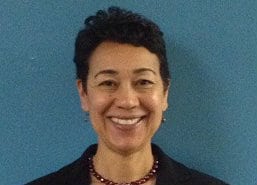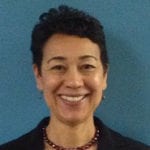As I conduct study tours to schools focused on Deeper Learning, it is heartening to see explicit attention paid to honing a set of knowledge, skills, and beliefs in students that includes the aspects of Deeper Learning: Mastery of Core Academic Content, Critical Thinking and Problem Solving, Collaboration, Effective Communication, Self-directed Learning, and growing an “Academic Mindset.” Yet these endeavors remain the province of a relatively small, though growing, network of schools.
Over the years I’ve had many occasions to think about equity in education. In 2004 I delivered a keynote address that examined the vision and challenge of equity. Since then until now I remain committed to working to achieve equity in student learning. A constant theme throughout this time has been how imperative it is to address issues of equity as we all strive to nurture students’ critical thinking skills, their ability to interact with those who are different from them, to stimulate their desire to actively engage in their communities, and to challenge themselves academically. Progress has been made, but much still remains to be done.
Here are some questions to ponder in the quest for more equitable Deeper Learning educational opportunities for all students. They certainly keep me up at night:
Understanding equity:
- How do we broaden the meaning of equity, so that we don’t only talk about race but address differences related to class, ethnicity, gender, language, special needs, and geographical location?
- Given that talking about equity and examining our deepest beliefs is an intensely personal and highly emotional endeavor, how do we get comfortable having these kinds of discussions?
- What are the best ways to talk to a range of communities, including civil rights organizations, faith-based groups, ethnic media organizations, etc. to learn about their aspirations for young people in their communities? How do we become better listeners during these conversations?
Systems structure:
- How do we reconcile the fact that the leadership of the Deeper Learning movement is predominantly white with our goal for a more inclusive and equitable educational initiative?
- How are we addressing the perception that students who participate in Deeper Learning are predominantly from higher income families and that students from lower income families do not have access to this kind of education?
- And how are we dealing with the concern voiced by some that because low-income student are currently not meeting standards they would rather first focus on providing students with basic instruction, rather than Deeper Learning?
- How are we spending money on schools and providing them with equitable resources? Is additional or extended learning time available to assist students who need more help?
Student Experiences:
- How do we incorporate the voices of students and honor their contributions?
- Are we providing all students with access to high quality instruction?
Supporting Teachers:
- How are we supporting teachers who have to work with students in a whole new way, facilitating their pre-service learning and ongoing professional development?
- How are we ensuring an equitable distribution of effective teachers, rather than driving experienced teachers to higher-performing schools and leaving less experiences teachers in schools that most need qualified educators?
- How do we encourage all teachers to have high expectations of all their students?
In my keynote many years ago I said it is vital to remember that we only have one chance to educate any child and it is our responsibility to ensure that they receive the best education possible. I still firmly believe that, and paying attention to equity is a critical component of ensuring that best possible education. Questions about equity still abound; I’ve shared some of mine in the hopes of sparking your own queries and questions, and hopefully full attention and active response to this critical issue. The sleepless nights continue aplenty; I long for a good night’s rest …
Some additional resources:
“Deeper Learning Has a Race Problem,” by Jal Mehta, June 20, 2014
“Inseparable Imperatives: Equity in Education and the Future of the American Economy,” Alliance for Excellent Education, November 2012
“Equity in Competency Education: Realizing the Potential, Overcoming the Obstacles,” Matthew W. Lewis, et.al.
Loretta Goodwin is a Senior Director at the American Youth Policy Forum.



